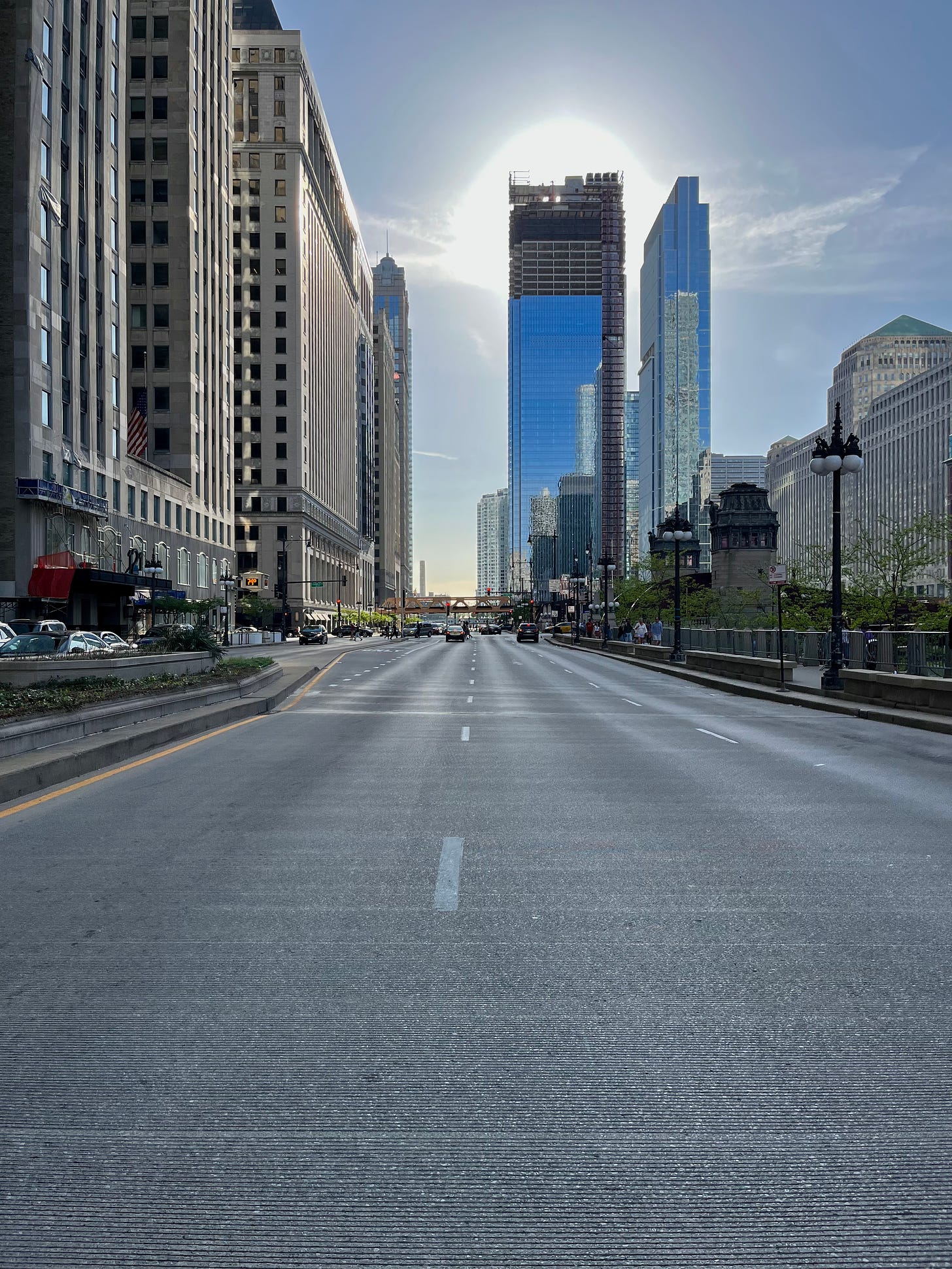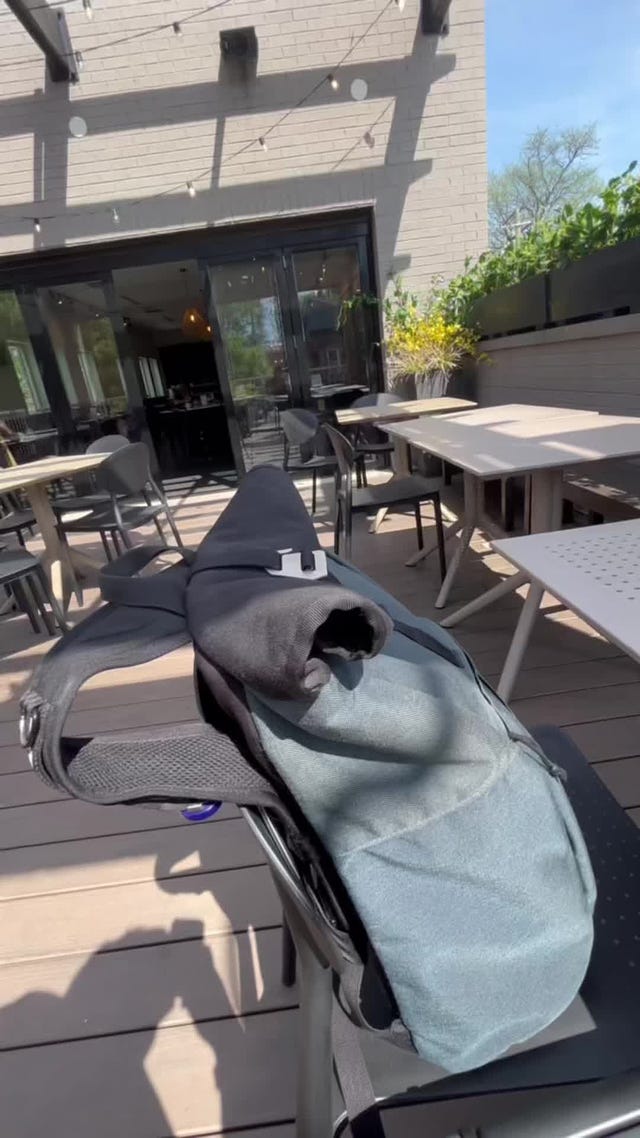This weekend I took a quick trip to Chicago to speak with many wonderful emerging leaders at Interfaith America’s (fka Interfaith Youth Core) Alumni Convening. It was a joyful time meeting so many incredible folks working towards love and justice in our nation.
Although only May, it felt like Chicago summer was in full swing—the weather was balmy, bikes were out, streets were blocked off for parties, and Oak Street Beach was packed full. As I took the Blue Line into Wicker Park to meet several friends for coffee, memories of living in the city flooded my mind.
There’s a sense of pride, I think, that comes with living in and knowing a city like Chicago. To know the streets and train lines, the neighborhoods and bars. Those who know the city are wrapped up in a collective ethos of love for a place. You deal with the parking, the taxes, the traffic, and the tourists because you are in love with your city. You defend her against outside critique when folks talk about how crime-ridden it is or the corrupt government leaders while lamenting the reality of generational poverty, food apartheid, racism, police brutality, and inequality…all because you love this city.
Last week I questioned how a “common good” might exist in a city like New York or Chicago. What could be “common” in a city with millions of people?
Perhaps this shared love for a place is a starting point. Maybe what is “common” is the smile that accompanies hearing the opening piano riff to Chance the Rapper’s “Sunday Candy” in Grant Park, the shared desire to spend a Saturday over on Montrose Beach, or the overflowing joy across the city when the Cubs won the World Series. It is the participation in a common life that is located in a particular place.
The pride that comes with being an “American” has undoubtedly taken on cultural baggage in the past decade. But those local categories—a New Yorker, a Chicagoan, a Wisconsinite, an Oregonian—still remain as a key identifier. In these places filled with a diversity of people, what is shared is a love for the place.
 Tiktok failed to load.
Tiktok failed to load.Enable 3rd party cookies or use another browser
I don’t know if the common good can be found here. It is a question I continue to wrestle with. But that is, in part, the purpose of this weekly newsletter—to invite you into all my half-filtered thoughts that someday might turn into articles and essays and books.
Until next week.
Reading
Willie Jennings “Binding Landscapes: Secularism, Race and the Spatial Modern” in Race and Secularism in America, Jonathan S. Khan and Vincent W. Lloyd, eds. (2016).
JD Tyler, “Amazon Moves Faster than the Kingdom of God" in CrossTalk (Substack).
Watching
Candy (Hulu)
Always Sunny in Philadelphia - Season 5 (Hulu)
Listening
Mr. Morale & The Big Steppers - Kendrick Lamar
Jiggle Jiggle - Duke & Jones, Louis Theroux
 Tiktok failed to load.
Tiktok failed to load.Enable 3rd party cookies or use another browser







